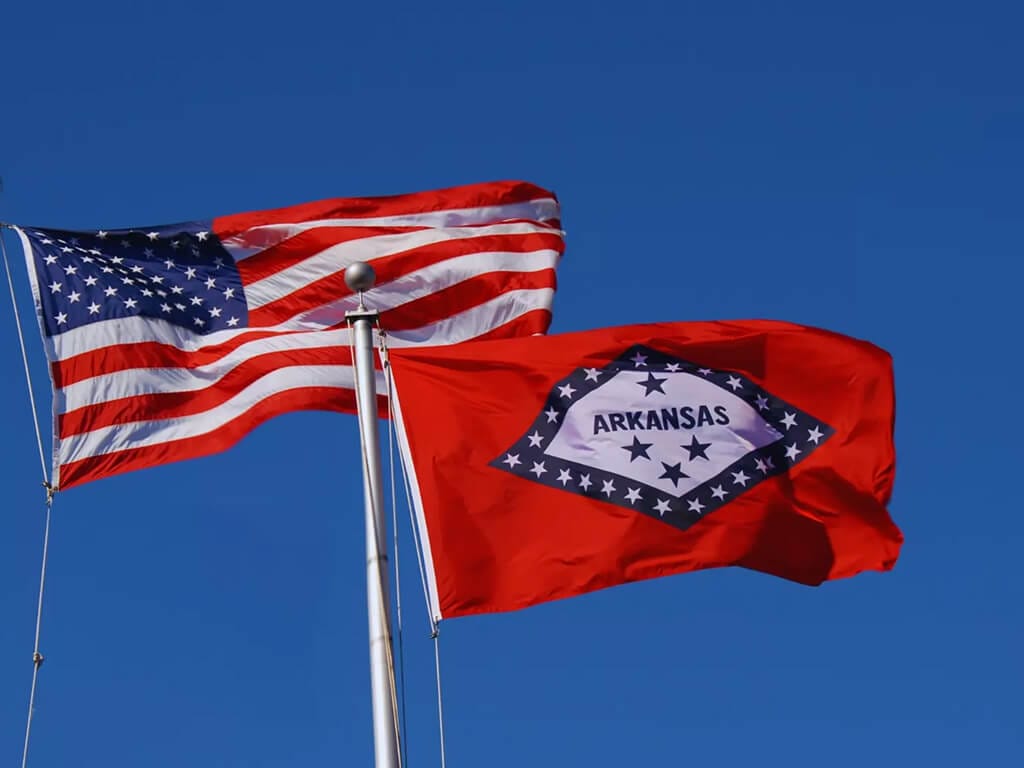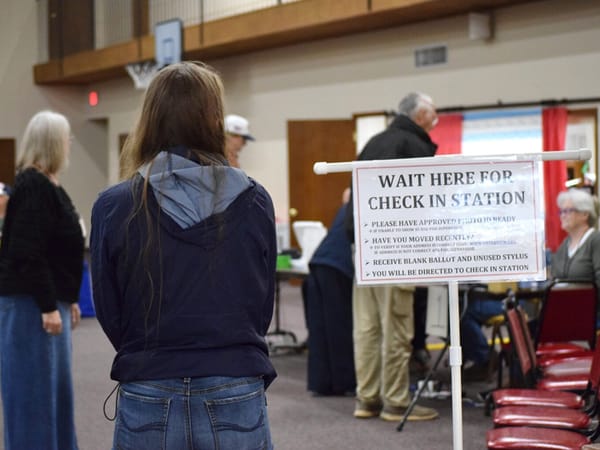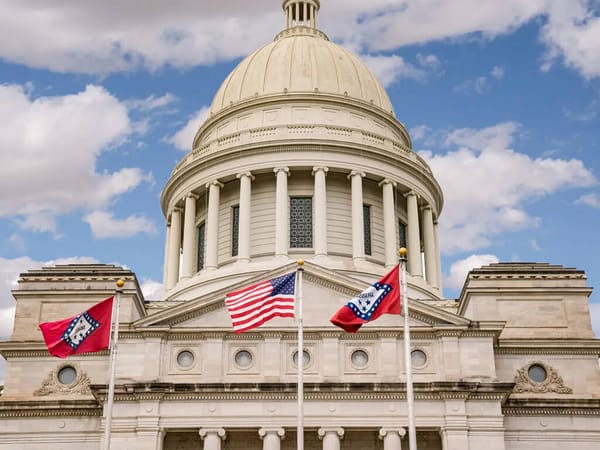A Charged Political Mood Greets the Start of Arkansas Election Season
Arkansas 2026 election season opens in a charged political climate, with Democrats working to regain footing as Republicans display confidence.

The Arkansas State Capitol came alive Monday as candidates from both parties gathered to make it official: the 2026 election season has begun. The building buzzed with campaign staff, cameras, and families as hopefuls filed the paperwork that will put their names on ballots across the state, from congressional races to local legislative contests.
Politics in Arkansas already feels more intense this year, and that energy filled the Capitol as filing opened on November 3. Partisan candidates lined up at noon, followed by nonpartisan contenders at 3 p.m., each eager to claim a spot in what promises to be one of the state’s most competitive election seasons in years.
Because Veterans Day falls on November 11, a federal holiday, the candidate filing period will close on November 12. The state’s election calendar is now set, with primaries on March 3, the general election on November 3, and runoffs, if needed, on December 1. Arkansas now moves into a campaign season defined by energy, anticipation, and high stakes.
Key Races and Special Elections
Arkansas voters will face a full ballot next year, with all major executive offices, including the governorship, along with all four U.S. House seats and one U.S. Senate seat up for election.
Adding to the busy schedule are two special elections to fill legislative vacancies. One race will determine the new representative for Senate District 26, which became vacant after the death of Republican Sen. Gary Stubblefield on September 2. The other will fill the House District 70 seat, vacated when Rep. Carlton Wing of North Little Rock resigned on September 30 to become the new executive director and CEO of Arkansas PBS.
Under the current plan, both special elections are scheduled to hold primaries on March 3 and general elections on June 6. However, those dates have drawn legal challenges. Two separate lawsuits argue that the proposed timeline could leave voters in both districts without representation during April’s fiscal session, when lawmakers will make key funding decisions.
In the Senate District 26 case, a judge directed that the election be held “as soon as practical,” and both the plaintiffs and the state have since appealed to the Arkansas Supreme Court. In a separate ruling on Friday, another judge decided that the House District 70 general election should be conducted on March 3 following arguments earlier in the week. The attorney general’s office has indicated it will appeal that ruling as well.
With both cases moving forward, the final decisions are expected to influence not only the timing of these elections but also the political momentum heading into the new year.
Can Democrats Rebuild Their Presence?
Few Democrats expect to transform Arkansas’ political landscape overnight. No Democrat has won statewide office since 2010, when former Governor Mike Beebe was re-elected. Still, many see reasons for cautious optimism heading into the 2026 elections.
Frustration over trade tariffs, financial pressure on farmers and small businesses, and the impact of the ongoing federal shutdown have left some voters uneasy. Others have voiced concern about what they see as overreach by Governor Sarah Huckabee Sanders, particularly involving controversial state projects.
While liberal candidates have long faced challenges in Arkansas’ socially conservative climate, Democrats hope to appeal to moderates and disillusioned Republicans by focusing on practical leadership and local priorities. Under the leadership of retired Col. Marcus Jones, chair of the Arkansas Democratic Party, members say the party is regaining energy after years of decline.
Republicans currently hold a supermajority in both legislative chambers, but Democrats are targeting several key districts. One of their main priorities is House District 70, where health care professional Alex Holladay is seeking the Democratic nomination. Holladay narrowly lost to former Rep. Carlton Wing by 286 votes in 2024.
In an October press release, Party Chair Marcus Jones called it “the most closely contested” race of that cycle. “Given that Democrats have overperformed by 18 percent in special elections since Trump took office, we feel confident that we can deliver another seat for Democrats in our State House,” he said.
Holladay is expected to face Cordelia Smith-Johnson, a U.S. Air Force veteran and one of the plaintiffs in the House District 70 election lawsuit, in the Democratic primary. On the Republican side, business owner and physical therapist Bo Renshaw has announced his plans to seek the GOP nomination.
Another prominent Democrat entering the race is Chris Jones, who ran against Sanders in the 2022 gubernatorial election. Jones filed to challenge U.S. Rep. French Hill for Arkansas’ 2nd Congressional District, which includes much of Central Arkansas.
Jones criticized Hill for what he described as “silence” during the ongoing federal shutdown, now in its sixth week. “While SNAP benefits are being cut off, we have the President having a Great Gatsby party for his billionaire friends, and French is saying nothing,” Jones said. “That’s what really matters, and it’s impacting Arkansas.”
State Sen. Fred Love of Mabelvale also entered the Democratic gubernatorial primary on November 3, hoping to challenge Sanders next year. Term-limited in the Legislature, Love said he has already begun traveling across the state to meet voters. “Everybody is saying the same thing, and I’m letting them know: Arkansas deserves better, and better is coming,” he said.
Love is expected to face Supha Xayprasith-Mays and Gary Huskey in the Democratic primary. Xayprasith-Mays previously ran in the 2022 gubernatorial primary but lost to Jones.
Meanwhile, Hallie Shoffner, a sixth-generation Arkansas farmer, has launched a campaign for the U.S. Senate seat held by Republican Tom Cotton. Speaking to reporters, Shoffner said her campaign centers on “the things that really matter to Arkansans,” such as affordable food and health care.
“We can’t expect workers and families to stretch their paychecks beyond their limits,” she said.
Shoffner pointed to a 2024 U.S. Department of Agriculture report showing Arkansas has the highest rate of food insecurity in the country. She warned that the ongoing shutdown could make matters worse as federal assistance programs face funding delays.
Republicans Project Confidence
Republicans entered the 2026 election season with confidence and visible momentum. Governor Sarah Huckabee Sanders officially filed for re-election on November 3, 2025, in a crowded ceremony inside the Capitol rotunda, assisted by Secretary of State Cole Jester. The event marked the ceremonial start of the nine-day filing period and drew enthusiastic supporters, reporters, and campaign teams.
Sanders was joined by U.S. Rep. French Hill and U.S. Sen. Tom Cotton, who also filed for re-election. On his campaign website, Cotton said he is “fighting for policies that put Arkansas first and make America strong again.”
Seeking a second term, Sanders said her top priorities remain education, public safety, affordability, and eliminating the state income tax. During her first term, she led sweeping reforms in education and parole policy, some of which are still being challenged in court. “The work we’ve started needs to continue, and I want to see Arkansas keep rising to the top,” Sanders said.
President Donald Trump, for whom Sanders once served as press secretary, endorsed her on his social media platform a day before filing began. As of Monday evening, no Republican challenger had entered the governor’s race.
Secretary of State Cole Jester announced his campaign for Commissioner of State Lands, a seat that opened due to incumbent Tommy Land reaching his term limit. “Arkansas’ land is one of our greatest resources for growth, and we must protect and manage it wisely,” Jester said.
Because Jester was appointed, not elected, to his current position, he cannot seek another term as secretary of state. He is expected to face two Republican opponents.
Other GOP hopefuls also made their bids official. Senator Kim Hammer of Benton filed to run for secretary of state, while veteran lawmaker Rep. Mark McElroy of Tillar filed for a sixth term, describing the first hour of filing as a “circus atmosphere” with lines longer than in past years.
Rep. Jeremy Wooldridge of Marmaduke also made headlines by filing to challenge Sen. Blake Johnson of Corning, becoming the only House member so far to take on an incumbent senator in a primary.
What Will Drive the 2026 Campaigns?
The United States is entering one of its most politically charged periods in recent memory, though far from the divisions of the Civil War era. Social media has deepened polarization, with algorithms amplifying outrage and resentment among voters.
Despite the tension, campaigns this year are expected to focus on maintaining party loyalty and preventing defections. Many voters, even those uneasy with their chosen candidates, tend to stay with their side to avoid seeing the other win. This could create an opening for Libertarian candidates who may appeal to voters frustrated with both major parties.
Across the state, campaign discussions are expected to cover a wide range of issues, including SNAP cuts, the Treasury shutdown, rising crime, the struggles of small businesses and farmers, job concerns, debates over Christian conservatism, the rise of leftist movements in New York, and global conflicts such as the Israel-Palestine crisis.
The proposed construction of a 3,000-bed state prison in Franklin County is definitely a campaign subject. Strongly supported by Governor Sarah Huckabee Sanders, the project has become one of the most divisive topics of the year. It has faced strong opposition from local residents and from members of Sanders’ own party, making the Senate District 26 and House District 70 special elections especially significant.
The late Senator Gary Stubblefield, who represented part of Franklin County before his death, was one of the most vocal opponents of the proposed prison project. Voters in Senate District 26 are now likely watching to see who will continue his efforts. Earlier this year, the Arkansas Senate failed five times to approve a $750 million funding bill for the facility. Lawmakers are expected to revisit the measure during the April fiscal session, keeping the issue alive as the election approaches.
Four Republicans are seeking to fill Stubblefield’s vacant seat: Stacie Smith, community affairs coordinator for Arkansas Oklahoma Gas; businessmen Brad Simon and Ted Tritt; and former state Representative Mark Berry. Smith, Tritt, and Simon have all voiced opposition to the prison proposal.
At the same time, Senator Bryan King of Green Forest, another opponent of the project, faces a primary challenge from Bobby Ballinger. King narrowly defeated Ballinger’s father, former Senator Bob Ballinger, by about 400 votes in the 2022 primary.
The debate over the prison project has revealed widening rifts within the Republican Party and could significantly influence Arkansas politics heading into the 2026 elections.





